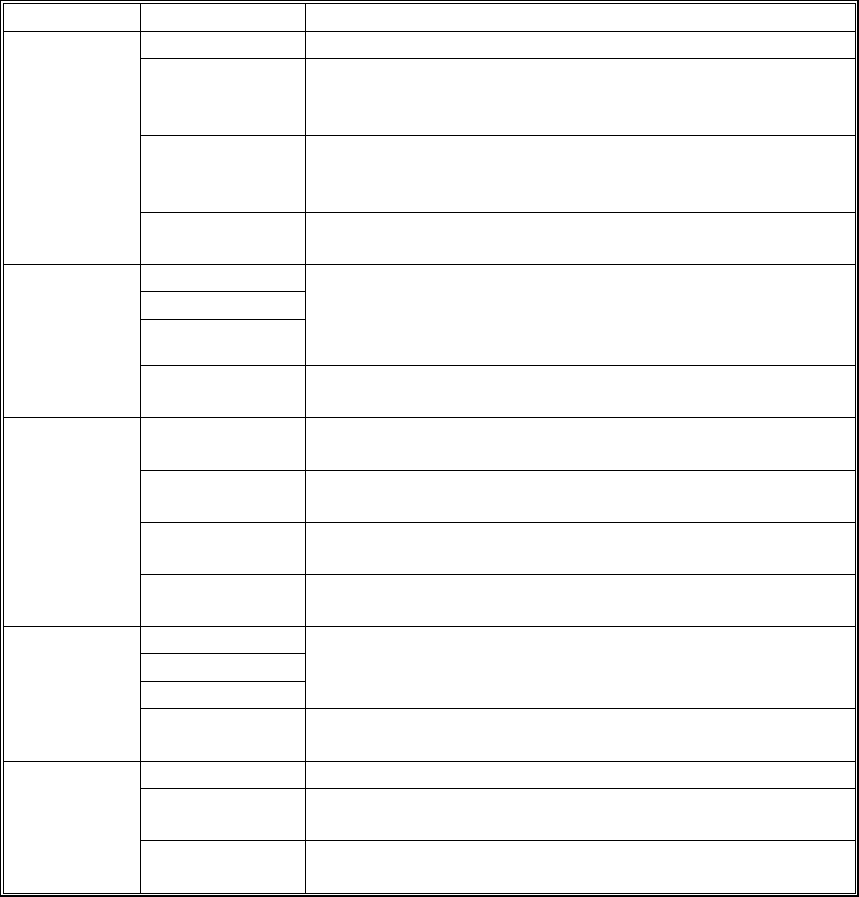
PTM 2-20 B070/B071
2.3.4 IMAGE PROCESSING MODES
The user can select one of the following five modes with the User Tools screen: Text,
Text/Photo, Photo, Pale, Generation.
Each mode has four different settings (described below). Each mode has a Custom
Setting that can be customized with SP modes to meet special requirements that
cannot be covered by the standard settings.
NOTE:
To see these settings in the User Tools mode, press the User Tools key, press
“Copier/Document Server Functions”, then press “Copy Quality”.
Mode Setting Function
Soft Rough texture background drops out.
Normal
Used for black-and-white printed material and
documents that contain mainly text. Easily reads lines
as well as text.
Sharp
Use for newspapers, time schedules, or any type of
printed material with fine print. Emphasizes black over
white.
Text
Custom
Setting
Stores SP command settings.
Photo Priority
Normal
Text Priority
Used for documents that contain text and color or black-
and-white photos, such as catalogs, magazines, maps,
etc. Provides more faithful reproduction than the Text
mode.
Tex/Photo
Custom
Setting
Stores SP command settings.
Print Photo
Used for magazines, graphics, for smooth reproduction.
Employs dithering.
Normal
Used for copying photographs, graphics, for sharp
reproduction. Employs error diffusion.
Glossy Photo
Used for best results in copying glossy photographs for
sharp reproduction. Employs error diffusion.
Photo
Custom
Settings
Stores SP command settings. Employs either error
diffusion or dithering, depending on an SP setting.
Soft
Normal
Sharp
Used for low density documents with text handwritten in
black or color pencil (or carbon copies) such as
receipts, invoices, etc.
Pale
Custom
Setting
Stores SP command settings.
Soft Used to achieve an image smoother than Normal.
Normal
Used to achieved best reproduction of “copies of
copies” by smoothing the image.
Generation
Copy
Sharp
Used to emphasize lines and text stronger than Normal
for better image quality.
